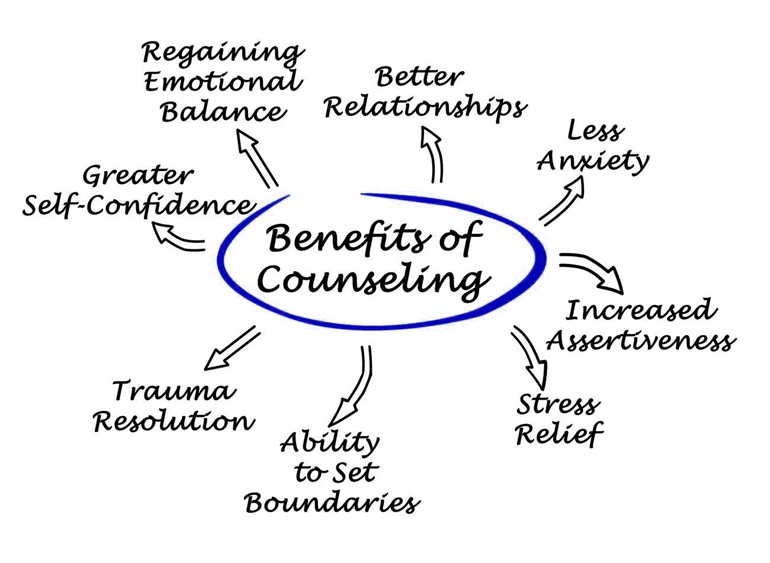Discovering Effective Methods With Mental Treatment for Teen Difficulties and Success
Mental therapy acts as a vital source for teens dealing with various obstacles throughout their formative years. By dealing with issues such as peer stress and academic stress, therapy outfits teenagers with necessary coping methods. Additionally, healing strategies like cognitive-behavioral treatment play a key duty in promoting emotional strength. Nevertheless, the influence of parental participation in this process continues to be a critical aspect. What transformative changes do these cooperations genuinely yield for teens traversing their intricacies?
Comprehending the Relevance of Mental Therapy for Teenagers
Although lots of teens deal with a myriad of emotional and emotional obstacles, the relevance of mental treatment commonly remains underappreciated. For teenagers steering the turbulent shift to adulthood, treatment functions as an important resource for establishing coping approaches and building resilience. Mental health and wellness specialists provide a safe area for teenagers to share their feelings, promoting self-awareness and understanding. This healing environment encourages open discussion, permitting teenagers to confront their stress and anxieties, concerns, and self-confidence problems without judgment.
Furthermore, mental therapy can aid adolescents discover crucial abilities, such as analytical and psychological policy, which are fundamental for managing tension and interpersonal relationships. By participating in therapy, teenagers can likewise acquire insights right into their actions and assumed patterns, encouraging them to make educated decisions. Ultimately, psychological therapy is not merely an assistance system; it is a foundational component in advertising the overall health and advancement of teenagers throughout a considerable period of their lives.
Usual Adolescent Obstacles Attended To by Therapy
As young adults navigate the intricacies of adolescence, they frequently run into difficulties that can considerably influence their psychological and psychological well-being. Usual problems consist of peer pressure, which can lead to anxiousness and stress as they seek for acceptance. In addition, identity exploration throughout this period might result in feelings of complication or low self-worth. Academic pressures likewise consider heavily on several teenagers, creating distress as they balance the assumptions of school and after-school activities.
Household characteristics can influence a teen's psychological state, especially during times of conflict or change, such as divorce. Mental wellness concerns, consisting of depression and stress and anxiety conditions, prevail and can prevent a teenager's ability to cope with everyday life. Treatment works as an important resource, assisting teenagers attend to these difficulties by giving a safe space to explore their feelings, develop self-awareness, and learn effective coping methods tailored to their special experiences.

Therapeutic Techniques for Building Coping Skills
Therapeutic techniques for building coping skills empower teenagers to manage their psychological and emotional challenges efficiently. One widely used method is cognitive-behavioral therapy (CBT), which helps adolescents recognize and reframe adverse idea patterns, therefore promoting resilience. Mindfulness techniques, such as reflection and deep-breathing exercises, encourage present-moment recognition, lowering stress and anxiety and improving emotional regulation.
Another technique involves role-playing, allowing young adults to exercise reactions to challenging situations in a safe setting, which can improve their confidence and problem-solving capacities. Art and songs therapy additionally supply innovative outlets for expression, making it possible for teenagers to process their sensations constructively.
Furthermore, journaling can function as a reflective device, enabling teenagers to track their feelings and determine triggers. Individual Counselling Services. On the whole, these restorative techniques outfit teenagers with useful skills to browse the complexities of their developing stage, cultivating individual growth and psychological wellness
The Duty of Parental Assistance in Therapy
Just how can adult assistance enhance the efficiency of treatment for teens? Study suggests that when moms and dads actively participate in their young adult's therapeutic procedure, the outcomes can be substantially enhanced. Adult participation promotes a feeling of stability and understanding, enabling young adults to really feel even more secure in addressing their obstacles. This support can materialize in various methods, consisting of participating in sessions, communicating honestly about feelings, and strengthening coping approaches in your home.

Success Stories: Transformative End Results of Psychological Therapy
Parental assistance plays a substantial duty in boosting healing results for teens, leading the way for amazing success stories in mental wellness therapy. Lots of teens have actually emerged from therapy with boosted psychological strength, much better coping mechanisms, and a boosted feeling of self-respect. One teenager battled with anxiousness that influenced their scholastic performance and social interactions. With the support of their moms weblink and dads and consistent treatment, they established techniques to take care of stress and anxiety effectively, eventually resulting in better qualities and renewed relationships.
One more success tale entails a young individual fighting anxiety. With the advice of a psychological health specialist and steadfast parental inspiration, the teen learned to engage and share feelings in favorable tasks. Consequently, they changed their overview on life, promoting aspirations for the future - Individual Therapy For Teens. These narratives highlight the extensive effect of mental therapy, showcasing just how support and efficient techniques can bring about transformative outcomes for teens facing obstacles
Frequently Asked Questions
Exactly How Can I Determine if My Teen Requirements Treatment?
Indications that a teen might need therapy include persistent unhappiness, withdrawal from social activities, extreme mood modifications, declining academic performance, and expressing feelings of hopelessness. Observing these behaviors can indicate the need for professional assistance.
What Is the Regular Period of Treatment for Teenagers?
The normal duration of therapy for teens differs, usually varying from six months to a year. Elements affecting this include the individual's specific obstacles, healing objectives, and the development made during sessions.
Are Online Treatment Procedure Effective for Teenagers?
Online therapy sessions can be efficient for teenagers, offering convenience and ease of access. Numerous researches suggest that digital sessions supply similar benefits to in-person treatment, promoting interaction and interaction, which are vital for adolescent psychological health and wellness support.
Just How Much Does Teen Mental Treatment Typically Price?
Teen mental treatment costs typically range from $50 to $250 per session, relying on the therapist's experience and location. Insurance policy coverage might reduce out-of-pocket expenditures, making therapy extra easily accessible for families looking for support.
Can Treatment Be Damaging for Some Young adults?
Therapy can be harmful for some teens, particularly if they really feel misinterpreted or unsupported. Unfavorable experiences may emerge from inadequate therapist matches, unacceptable strategies, or unsettled injury, possibly bring about increased anxiety or distress rather than healing.
